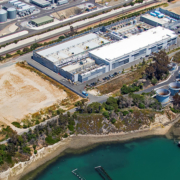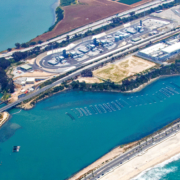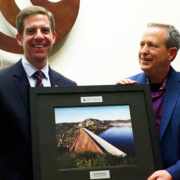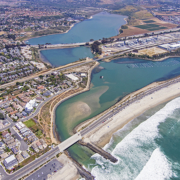COVID-19: Carlsbad Desal Plant Workers Shelter-in-Place to Keep the Water On
The COVID-19 pandemic has caused companies and organizations around San Diego County to take measures to continue serving the public.
As of Friday, 10 workers are quarantined inside the Claude “Bud” Lewis Carlsbad Desalination Plan for the next three weeks, monitoring and adjusting gauges and switches, watching for leaks, and doing whatever is needed to safeguard San Diego County’s only significant local source of drinking water.
COVID-19 pandemic prompts ‘extraordinary steps’
“We asked some employees to be locked down at the plant for 21 days to isolate the risk of infection,” said Gilad Cohen, CEO of IDE Americas, the global company that operates the Carlsbad plant and others around the world.
The request for volunteers was a precaution against the spread of the COVID-19 pandemic.
The “mission critical” employees will work 12-hour shifts, sleep in rented recreational vehicles in the parking lot, and be resupplied with fresh food left for them at the plant’s gate. They will be furnished with washers and dryers to do their own laundry, and the desalination plant’s kitchen and cafeteria are available to them.
Read the rest of the story from The San Diego Union-Tribune here: https://bit.ly/2wz5pZd
The San Diego County Water Authority purchases up to 56,000 acre-feet of water from the Carlsbad plant per year – enough to serve approximately 400,000 people annually.
The plant is a major component of the Water Authority’s multi-decade strategy to diversify the county’s water supply portfolio and minimize vulnerability to drought or other water supply emergencies.
“While the on-site team shelters in place, a second team is remaining in isolation at home and fully prepared to take over plant operations should any situation arise that would necessitate a change in staffing or if the COVID-19 threat extends beyond 21 days,” according to a statement from Poseidon Water.
“Poseidon Water is working in close coordination with the San Diego County Water Authority, IDE Americas Inc. and the California State Water Resources Control Board Division of Drinking Water and will continue to evaluate the situation and take any necessary steps to ensure uninterrupted production and delivery of safe drinking water from the Carlsbad Desalination Plant.”








